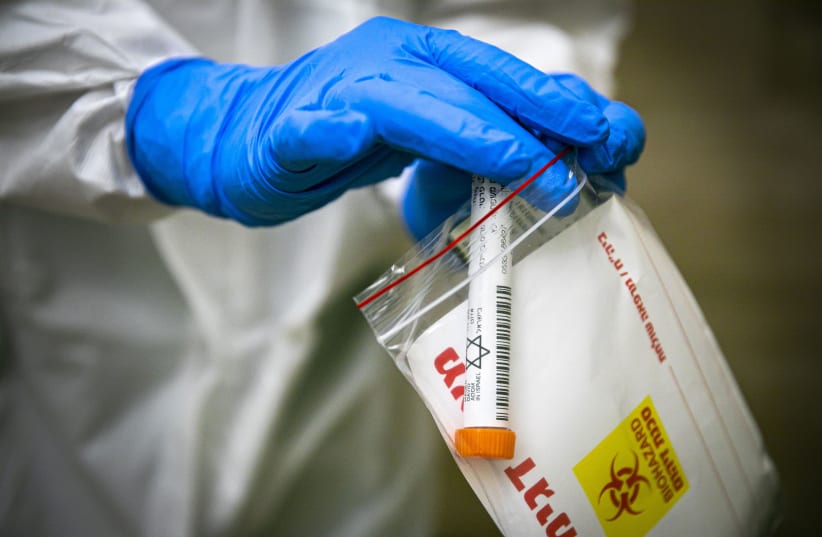"In the first round I had a few symptoms, this time I have crazy pains," 28-year-old Roi Elmaliah told Channel 12. "I have a fever, stomach pains and muscle pains that because of them, I can't sleep at night."
Shira Hillel, 24, also recently fell sick with COVID-19 for a second time."In 'Corona A' I had light symptoms like a lack of taste and smell; this time was harder physically," explained Hillel to Channel 12. "I feel the body weakness, the headaches and sometimes difficulty breathing a lot more. I won't lie, this is also hard mentally. I feel like a leper."
Hillel was first infected with the virus in June, after her brother infected a large portion of her family. Since then, she was confirmed as negative for the virus twice and thought she would be immune, at least for a few months.
"They put it into our heads so much that we were immune for at least three months and that we were developing antibodies, so yes, in my head I thought that I didn't need to get tested again and that I didn't really need a mask. I only wore it because I had to," added Hillel.
Hillel realized that she had been infected again after she began to experience muscle pains similar to those she had when she was infected the first time."In my head, I said 'there's no way it's this' – maybe I still have a few symptoms. I didn't give too much importance to it," she explained to Channel 12. "Even when the strong headaches began, I just continued my regular routine. Only when my friend told me that she was confirmed as infected, I immediately understood and went to get tested because it was a little suspicious."
Prof. Arnon Ofek, deputy director-general of Sheba Medical Center, told Channel 12 that while this kind of situation is relatively rare, it is showing up in literature around the world."The first case was in Hong Kong, but there were also cases in Nevada and other places. Some of the cases were lighter but some were more severe."
"We don't really know everything about the virus and it will still surprise us in many things. In the end, immunity is created but it is different between people. We believe that there is a degree of protection," said Ofek. "This also has importance regarding the vaccine: We know that people will need two doses and that we will have to vaccinate again in X [amount of] time."
CASES OF suspected reinfection with the novel coronavirus have been reported multiple times in Israel.
In June, a doctor at Sheba Medical Center in Tel Hashomer tested positive again for the novel coronavirus three months after initially recovering from the disease.The doctor suffered from fever, cough and muscle pain when she tested positive for the virus in April, but she recovered and tested negative in May and June, before coming into contact with a confirmed patient and testing positive again.
The doctor “tested positive again because she has remnants of her first virus still floating around in her body,” a hospital spokesperson told The Jerusalem Post at the time.
In May, a 45-year-old woman from Jisr e-Zarka tested positive for coronavirus after being readmitted to Hillel Yaffe Medical Center in Hadera, suffering from fever and chest pains. This came a month after she was discharged after recovering from the virus and testing negative twice.
Preliminary studies in China, Germany, the UK and elsewhere have found that patients infected with the novel coronavirus make protective antibodies as part of their immune system’s defenses, but these appear to last only a few months.
Some experts say it is likely that such cases are starting to emerge because of greater testing worldwide, rather than because the virus may be spreading differently.
Still, Dr. David Strain, a clinical senior lecturer at the University of Exeter and chairman of the British Medical Association's medical academic staff committee, said the cases were worrying for several reasons.
"The first is that it suggests that previous infection is not protective," he said. "The second is that it raises the possibility that vaccinations may not provide the hope that we have been waiting for."
To be truly effective, COVID-19 vaccines “will either need to generate stronger and longer-lasting protection... or they may need to be given regularly,” said Stephen Griffin, a Leeds University associate professor of medicine. “And those things are not trivial.”
Celia Jean and Reuters contributed to this report.
